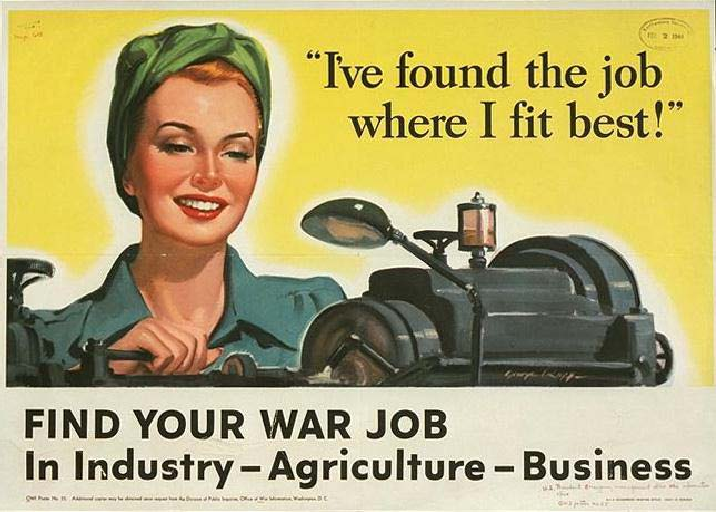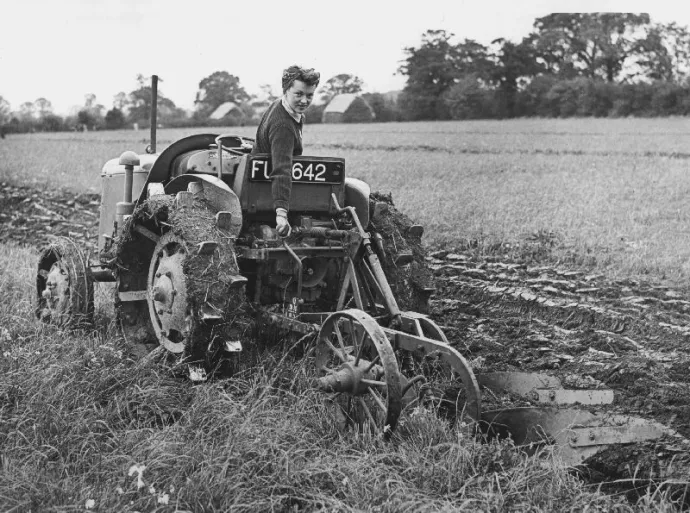I grew up in an environment where the work world was an equal opportunity place for women —or at least my family treated it as such. My mom worked hard always and my stepmom was a bright attorney; so, the men, including me and my dad and brother were expected to help hold down the home front. That’s why it was so remarkable, and such an eye-opener, for me to learn what a revolution World War II was for women in the workforce. They heroically flocked to roles they had never been called to before.
Yes, it happened for the obvious reason that hundreds of thousands of men in their prime were overseas fighting or otherwise in uniform, but it also became unspoken recognition that they could do whatever called on for. It was the biggest leap in the history of our country in proving women capable of anything that men did. Women stepped up not just in industrial jobs but in keeping essential small businesses alive, in gaining footholds in professions, and in supporting the military in nearly everything but combat positions. They had to give up many of those jobs, and many returned to the domestic front, when the men came home, but it was two steps forward, and only one step back.

The same challenges were thrown to them across the farmlands of our nation. In creating this story, I was intrigued at what the burden must have been like for women farmers to keep the family farms of America running when the menfolk had left for the war.
What if the once-doted-on daughter of a farm couple suddenly had the their entire agricultural spread and operation dropped in her lap. Ella had grown up on the farm and treasured it as the family center but had never been expected to run it, to have it as her responsibility, to keep it alive. The war was going to stretch for years, and labor was short. It would been a superhuman impossibility to do it on her own.

But working beside someone — even an alien stranger — to help make it happen creates an intimacy…at a lonely time. Then the healthy, young, and lusty will do what humans do!